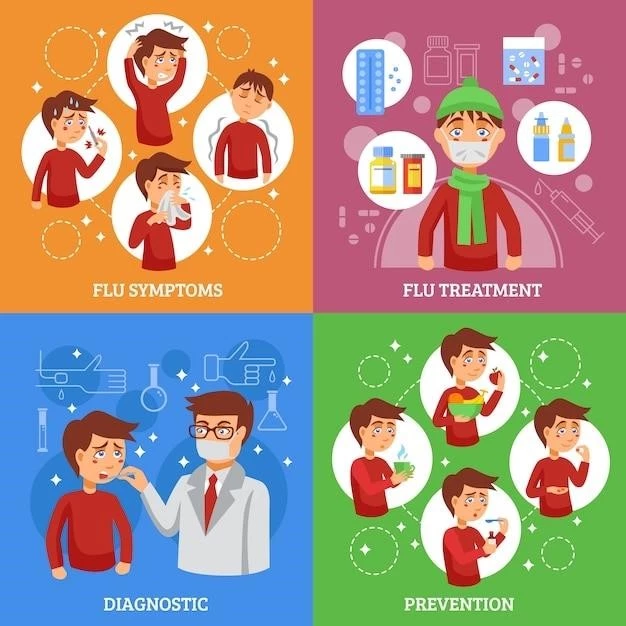Introduction to Maroteaux–Stanescu–Cousin Syndrome
This inherited disorder is a metabolic disease due to enzyme deficiency causing mucopolysaccharides buildup.
Overview of the Inherited Disorder
Maroteaux-Stanescu-Cousin Syndrome, also known as MPS type VI, is a rare genetic metabolic disease caused by an enzyme deficiency impacting the breakdown of mucopolysaccharides. This leads to the accumulation of these complex sugar molecules in various tissues throughout the body. The syndrome is characterized by skeletal abnormalities, dwarfism, joint stiffness, coarse facial features, enlarged spleen, heart problems, neurological issues, developmental delay, and hearing loss. Early diagnosis and appropriate medical management are crucial in addressing symptoms and improving quality of life. Genetic counseling plays a key role in understanding the condition, its inheritance patterns, and the potential risks for future generations. Ongoing research studies aim to enhance our knowledge of Maroteaux-Stanescu-Cousin Syndrome, explore new treatment options, and improve patient outcomes.
Genetic Mutation and Enzyme Deficiency
Maroteaux-Stanescu-Cousin Syndrome is caused by mutations in the ARSB gene, leading to a deficiency in the enzyme arylsulfatase B. This enzyme is essential for breaking down specific mucopolysaccharides. The genetic mutation results in the impaired breakdown and clearance of these complex molecules, leading to their accumulation in various tissues. Understanding the specific genetic alterations associated with the syndrome is crucial for diagnosis, genetic counseling, and potential future treatment developments. Research studies continue to explore the underlying genetic mechanisms and potential therapeutic targets for addressing the enzyme deficiency in individuals with Maroteaux-Stanescu-Cousin Syndrome.

Symptoms and Manifestations of the Syndrome
Recognize skeletal abnormalities, joint stiffness, dwarfism, heart problems, and neurological issues in Maroteaux-Stanescu-Cousin Syndrome.
Skeletal Abnormalities and Dwarfism
Individuals with Maroteaux-Stanescu-Cousin Syndrome may present with skeletal abnormalities such as shortened long bones, dysplasia, and abnormalities in the spine and ribs, leading to dwarfism. These skeletal issues can impact mobility and overall health. Early recognition and appropriate medical interventions are key in managing these manifestations. Close monitoring and coordinated care by a multidisciplinary team of healthcare professionals can help address skeletal abnormalities and support individuals with dwarfism associated with the syndrome.
Joint Stiffness and Coarse Facial Features
Joint stiffness and coarse facial features are common characteristics of Maroteaux-Stanescu-Cousin Syndrome. The joint stiffness can affect mobility and lead to physical limitations. Coarse facial features, including thickened lips, enlarged tongue, and prominent forehead, are noticeable signs. Early detection and symptom management strategies can help improve quality of life. Consult with healthcare providers for personalized care plans addressing joint stiffness and facial features associated with the syndrome. Collaborative medical interventions can enhance mobility and support overall well-being.
Enlarged Spleen and Heart Problems
Individuals with Maroteaux-Stanescu-Cousin Syndrome may experience an enlarged spleen due to the accumulation of mucopolysaccharides. Additionally, heart problems such as valve abnormalities or cardiomyopathy can occur. Regular monitoring by healthcare professionals is crucial to assess and manage these concerns effectively. Collaborate with a medical team to develop a personalized care plan addressing the enlarged spleen and heart issues associated with the syndrome; Timely interventions and symptom management strategies can help optimize heart health and overall well-being.
Neurological Issues and Developmental Delay
Neurological issues and developmental delay are common in Maroteaux-Stanescu-Cousin Syndrome. Individuals may experience cognitive impairments, motor skill deficits, and behavioral challenges. Early recognition and intervention by a multidisciplinary team including neurologists, therapists, and educators are essential. Collaborate with healthcare providers to create tailored strategies for managing neurological issues and supporting developmental progress. Regular evaluations and personalized interventions can help enhance cognitive function, motor skills, and overall developmental outcomes for individuals affected by the syndrome.
Hearing Loss and Other Associated Symptoms
Hearing loss is a common symptom of Maroteaux-Stanescu-Cousin Syndrome, impacting communication and quality of life. Other associated symptoms may include corneal clouding, sleep apnea, hernias, and respiratory issues. Early detection and management of hearing loss are crucial. Consult with audiologists, ophthalmologists, and other specialists to tailor interventions to address specific symptoms effectively. Collaborative healthcare efforts can help mitigate the impact of hearing loss and manage other associated symptoms, improving overall well-being and quality of life for individuals with Maroteaux-Stanescu-Cousin Syndrome.
Diagnosis and Medical Management
Timely diagnosis and appropriate medical interventions play a crucial role in managing Maroteaux-Stanescu-Cousin Syndrome effectively.
Diagnostic Procedures for Maroteaux-Stanescu–Cousin Syndrome
Diagnostic procedures for Maroteaux-Stanescu-Cousin Syndrome may include genetic testing, enzyme activity assays, imaging studies (X-rays, MRI), and clinical evaluations. Genetic testing can identify mutations in the ARSB gene, confirming the diagnosis. Enzyme activity assays help assess the deficiency in arylsulfatase B enzyme. Imaging studies aid in identifying skeletal abnormalities and organ involvement. Clinical evaluations by healthcare professionals can detect specific symptoms and guide treatment decisions. It is essential to undergo comprehensive diagnostic assessments to establish an accurate diagnosis and initiate appropriate medical management tailored to individual needs.
Symptom Management and Treatment Options
Symptom management for Maroteaux-Stanescu-Cousin Syndrome focuses on addressing skeletal abnormalities, joint stiffness, heart problems, neurological issues, and other associated manifestations. Treatment options may include enzyme replacement therapy, physical therapy, cardiac medications, surgical interventions, and supportive care. Collaborate closely with healthcare providers to develop a comprehensive treatment plan tailored to individual needs. Regular monitoring and adjustments to the management strategy can help optimize symptom control and enhance quality of life. Seek interdisciplinary support to access a range of interventions aiming to manage symptoms effectively and improve overall well-being for individuals with Maroteaux-Stanescu-Cousin Syndrome.
Importance of Genetic Counseling
Genetic counseling is crucial for understanding Maroteaux-Stanescu-Cousin Syndrome’s inheritance and risks for future generations.
Role of Genetic Counseling in Understanding the Condition
Genetic counseling plays a critical role in helping individuals and families comprehend the genetic basis of Maroteaux-Stanescu-Cousin Syndrome. Counselors provide information about the genetic mutation, inheritance pattern, recurrence risks, prenatal testing options, and available support resources. Understanding the condition’s genetic aspects can empower families to make informed decisions regarding family planning, genetic testing, and potential treatment approaches. Genetic counselors offer guidance, emotional support, and education to navigate the complexities of genetic conditions, enhancing awareness and promoting informed choices within affected families.
Research Studies and Advances
Stay informed about ongoing research studies to enhance knowledge, explore new treatments, and improve outcomes for Maroteaux-Stanescu-Cousin Syndrome.
Current Research on Maroteaux–Stanescu–Cousin Syndrome
Current research on Maroteaux-Stanescu-Cousin Syndrome focuses on exploring novel treatment modalities, understanding disease mechanisms, and improving diagnostic techniques. Studies aim to enhance enzyme replacement therapy efficacy, investigate gene therapy approaches, and develop targeted interventions for specific symptoms. Researchers are also evaluating the impact of early interventions on long-term outcomes, analyzing genotype-phenotype correlations, and identifying potential biomarkers for disease monitoring. Stay updated on research advancements to access potential future treatments, participate in clinical trials, and contribute to the collective effort of advancing knowledge and improving care for individuals with Maroteaux-Stanescu-Cousin Syndrome.
